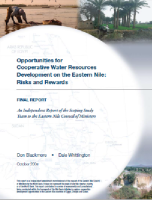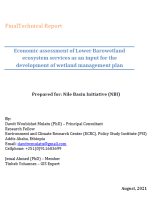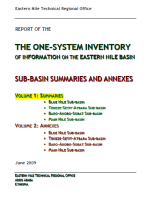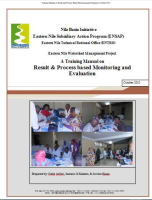Abstract
Independent Report of the JMP Scoping Study team to the Eastern Nile Council of Ministers (ENCOM), commissioned by the World Bank, to (1) explore the Eastern Nile as a river system shared by three countries; and (2) identify the physical potential of the river system to yield opportunities for cooperative development and the risks of cooperation and non-cooperation. The overall conclusion is that there are sufficient water resources available to support the development envisaged in a first JMP without impacting on Egypt, Ethiopia and Sudan‟s stated water requirements. The study emphasised the need for regional cooperation and appropriate institutions to support such a development and noted the imperative for a mutually acceptable power trade agreement or other equivalent means of monetising benefits. Using a computer simulation model of the river basin to analyse the most promising first set of investments in the EN sub-basin along the lines of the broad JMP concept, the study concluded that the Abbay-Blue Nile sub-basin in Ethiopia offered the best opportunity for such investments (provides multi-purpose benefits; spurs benefits to all riparian states; and causes no regrets). Subsequently, the Report focused on alternative development scenarios for the Abbay-Blue Nile sub-basin.



